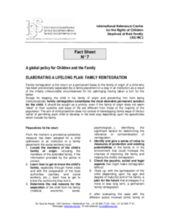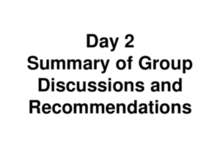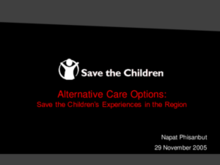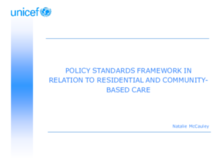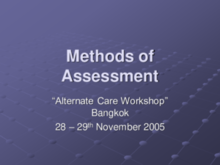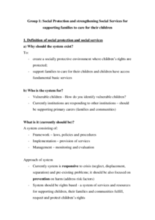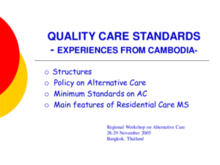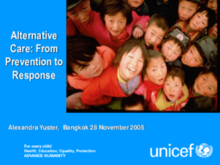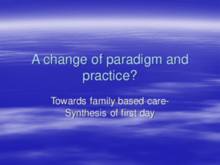Displaying 4161 - 4170 of 4431
A brief fact sheet on family reintegration. Provides an overview of what a social worker should pay attention to when assessing a child's situation.
This document provides an outline of the Workshop on Indicators and Information Systems, held on day 2 of the Alternative Care Workshop in Bangkok in November 2005.
This document provides a summary of the group discussions and recommendations from day 2 of the Alternative Care Workshop held in Bangkok in November 2005 to discuss children's care in the region, post-tsunami.
This presentation from Save the Children was given at the Alternative Care Workshop in Bangkok in November 2005.
This presentation from UNICEF was given at the Alternative Care Workshop in Bangkok in November 2005. It outlines the standards and principles for residential and community-based care in the region.
This presentation was given at the Alternative Care Workshop in Bangkok in November 2005.
This document presents notes from the Group 1 session of the Alternative Care Workshop in Bangkok in November 2005, focused on Social Protection and strengthening Social Services for supporting families to care for their children.
This presentation was given at the Alternative Care Workshop in Bangkok in November 2005.
This presentation from UNICEF was given at the Alternative Care Workshop in Bangkok in November 2005. It highlights the links between alternative care and social protection in the South East Asia region and outlines a strategic plan.
This presentation was given at the Alternative Care Workshop in Bangkok in November 2005. The presentation describes the slow shift toward family-based care options in the South East Asia region.

